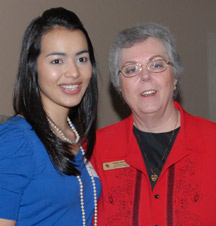Posted: 5/09/08
2nd Opinion:
The morning of many miracles
By Doug Mendenhall
Let’s say God’s in a quirky mood, like when he created the platypus or nudged the Appalachian State football team past Michigan.
Let’s say he decides, for a few hours only, to drastically relax his standards on miracles. For this one morning, the new protocol is boiled down to:
• Requester must believe in God.
• Requester must have honorable motives.
• Request granted.
So at 6 a.m. on this special morning, unannounced, God lets the miracles begin.
At 6:03, the first prayerful soul offers up her daybreak litany of sick and dying friends and acquaintances.
At 6:05, those who are awake feel much better.
At 6:42, those in that first healed generation begin offering prayers of their own. Mostly they give thanks, but some include requests for this healing power to spread—more healings, a couple of saved marriages for friends or relatives, the payment of overdue bills piled up during a long hospital stay.
At 7:15, one of the couples whose marriage was on the rocks awaken at the same time, not on opposite sides of the bed, but cheek by cheek. Ignoring the morning breath, they share their first kiss in a long time and are late getting the kids up for school.
At 8:07, a clerk at the hospital calls to confirm payment of those bills. The clerk is told of the miracle behind the payment.
At 8:10, the clerk summons her faith and prays for a better-paying job to support her aging parents.
At 8:15, she gets a call from an old friend at a bank about a position as a loan officer.
Between 8:15 and 9, the hospital discharges most of its patients as word spreads from room to room about the potent power of prayer.
At 9:02, a bank loan officer arrives for work only to be told she has been replaced. No reason given.
At 9:07, two people die in a collision at the crowded exit from the hospital parking lot.
At 9:11, little Johnny prays that he can be one of the popular kids at school, so that everyone will stop making fun of him.
At 9:15, a single mother prays that the man she’s seeing will finally leave his wife so that her children can have the father they need.
At 9:22, the wife, on her way home from belatedly dropping off the kids at school, picks up her cell phone. It’s her husband. “Hey, sweetie,” she purrs, but he answers curtly: “I want out. I don’t love you anymore.”
By 9:30, the financial power of prayer is being broadly tapped. Loans are being forgiven, bank accounts are filling out of thin air and 401(k) portfolios are growing beyond all reason.
At 10:15, the stock markets begin reacting to news of irregularities in the banking industry.
At 10:19, a third-grader on the playground is sobbing miserably, wondering why little Johnny, his only friend, doesn’t want to play with him today.
At 10:42, the former loan officer, distraught and not knowing where to turn, turns her car off a cliff.
By 10:52, there are no more cliffs, for all of the mountains have been moved one at a time into the sea by rookie believers, just checking to see if it would really work.
At 11 a.m., God does the world a favor. He stops the morning of miracles an hour early.
He cleans up the mess.
He goes back to moving in mysterious ways.
So mysterious that even those who believe firmly that God is at work in the world are seldom certain: Did I just witness a miracle, or was it merely … one of those weird coincidences?
The power is always there if a mountain needs to be moved into the sea, but mostly God keeps a lighter touch on the controls.
Maybe we should pray that he never hands us those controls.
Not even for a single morning.
Doug Mendenhall, author of How Jesus Ended up in the Food Court, serves is a columnist for the Huntsville Times in Huntsville, Ala. His column is distributed by Religion News Service.
News of religion, faith, missions, Bible study and Christian ministry among Baptist churches, in Texas, the BGCT, the nation and around the world.




